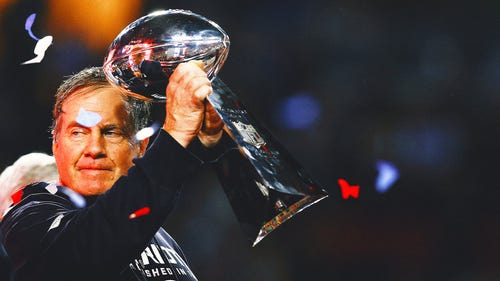
AP Survey: NFL players' 'career decisions' can affect games
Ever watched an NFL game and thought a running back might have stepped out of bounds to avoid a hit for fear of getting injured?
Or wondered whether a receiver failed to make a catch because he held up ever so slightly? Or a linebacker didn't deliver a hit that could change the game because he was protecting himself?
Players around the league say they notice these things, too. Frequently, even. So much so that they've coined a phrase for it.
''A lot of people make `career decisions' all the time,'' Miami Dolphins defensive back Michael Thomas said with a laugh. ''It's a joke, but we call those `career decisions' when people do those.''
In an Associated Press survey conducted this season and released Sunday, 71 of 100 NFL players said they've seen other players allow injury concerns to affect what happens in a game. And more than a third of those interviewed by the AP acknowledged they've made their own ''career decisions,'' allowing the way they play to be altered by such considerations as whether they could get hurt or exacerbate an existing injury.
''You see it all the time,'' Jacksonville Jaguars linebacker Paul Posluszny said, explaining: ''You have some of those great athletes who will catch a pass, get a first down and step out of bounds, whereas maybe 10 years ago, that kind of guy would put his shoulder down and try to get a few extra yards.''
Some players, such as Chicago Bears running back Ka'Deem Carey, estimated they see it once per game.
A sixth-year NFC tight end, granted anonymity in order to speak freely about the topic, said that short-arming passes or seeking safe haven out of bounds to minimize contact happens ''all the time'' and ''if someone says `No,' they're lying.''
Minnesota Vikings offensive lineman Jeremiah Sirles calls it ''just smart football.''
''If you're in Year 8 or 9, and you're running down the sideline, and (Seattle Seahawks safety) Kam Chancellor's running at you, what's those extra 2 yards compared to just stepping out of bounds and avoiding a huge collision?'' Sirles said. ''I think that there's a difference between being tough and playing smart.''
Judging by the responses collected by the AP, the longer players are in the league - and, therefore, the closer they are to the end of their careers - the more injury concerns creep into their minds during games. Or perhaps it's just that they're more willing to acknowledge that it happens.
Nearly half of the players in their fourth year or later, 44 percent, said their play has been affected. Only 21 percent of players with three years or fewer of experience told the AP that was the case.
''You could have gotten me to run through a brick wall back when I was younger,'' said Dallas Cowboys defensive end Jeremy Mincey, 32, whose NFL career began in 2007. ''But now, (as) you just get older and wiser, you learn. `Win this battle, lose that war?' Nah, I'd rather win the war.''
Cleveland Browns offensive lineman Mitchell Schwartz, who just finished his fourth season, described how difficult it is for someone playing despite an ailment ''to kind of take that out of your brain,'' because ''200,000 years of evolution have told us that you are supposed to avoid pain at all costs.''
If there is a cause for concern - a lingering hand injury, for example - it can't simply be ignored.
''As an offensive lineman, you're using your hand on every play,'' Schwartz said, ''and there's definitely times you're thinking about it and you are more reticent to use it.''
Baltimore Ravens receiver Steve Smith is widely considered about as rugged as they come in today's NFL - he played part of this season, his 15th, with broken bones in his back, before going on injured reserve with a torn Achilles tendon. But even Smith says he is cautious at times.
He recalled seeing a defensive teammate flatten an opposing receiver during a game. Soon after, Smith said, he was crossing the field toward a pass from Joe Flacco ''with a defender right there, and I second-thought it. I thought, `I just saw this. I'm not sure how this is going to work out.'"
---
The following AP Sports Writers contributed to this report: Genaro Armas, Bob Baum, Tim Booth, Dave Campbell, Tom Canavan, Jay Cohen, Schuyler Dixon, Josh Dubow, R.B. Fallstrom, David Ginsburg, Jimmy Golen, Fred Goodall, Will Graves, Joe Kay, Larry Lage, Mark Long, Rob Maaddi, Michael Marot, Brett Martel, Janie McCauley, Paul Newberry, Steve Reed, Kristie Rieken, Dave Skretta, Teresa M. Walker, Dennis Waszak Jr., John Wawrow, Bernie Wilson, Steven Wine and Tom Withers.
---
Follow Eddie Pells on Twitter at http://twitter.com/epells and find his work at http://bigstory.ap.org/content/eddie-pells
Follow Howard Fendrich on Twitter at http://twitter.com/HowardFendrich and find his work at http://bigstory.ap.org/content/howard-fendrich
---
Online:
AP NFL website: www.pro32.ap.org and AP NFL Twitter feed: http://twitter.com/AP-NFL










